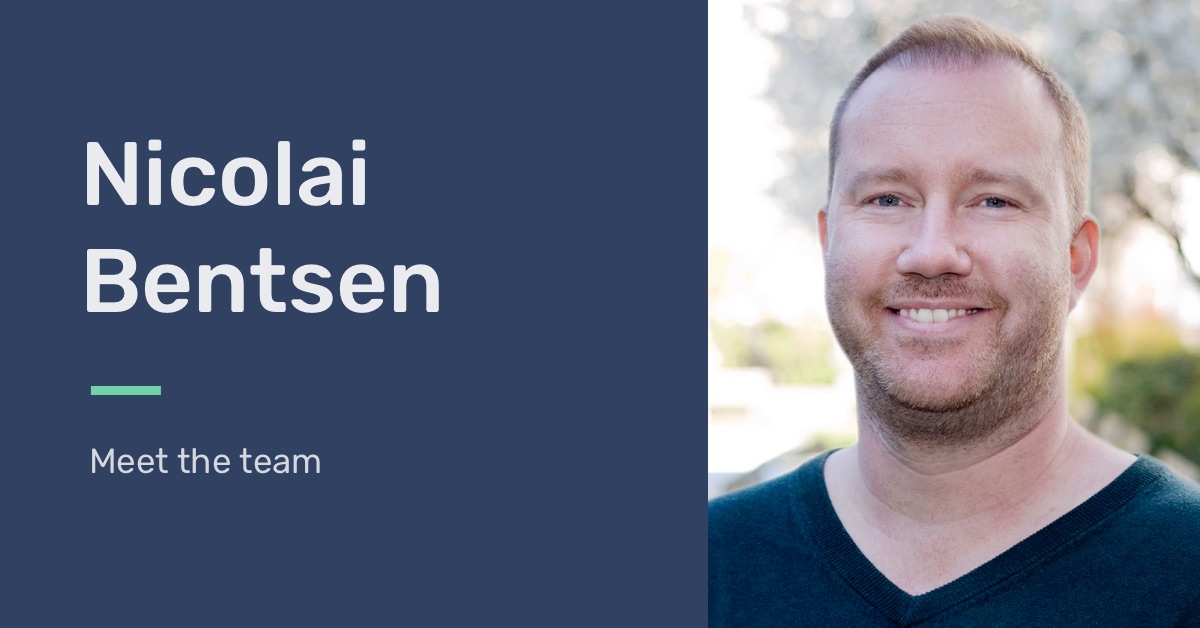We’re excited to welcome our new VP of Development, Nicolai Bentsen, who joins us from a previous position as VP of Data at Vivino.
As one of the first employees at Vivino, Nicolai was instrumental in transforming that company into the world’s largest online wine marketplace by structuring vast datasets for use in a manageable, user-friendly application that helps consumers make educated wine choices. Nicolai will use his 20 years of experience in software development to help grow Nordsense and save our customers time and money, while producing cleaner, safer cities and communities.
To give you a better appreciation of Nicolai’s talents, his vision of his new role at Nordsense, we presented five questions to our new VP of Development.
1. At Vivino you did a lot of work with data. How will that experience translate into the Nordsense waste management solution?
The ability to properly structure data is invaluable. Whenever you are able to produce meaningful insights from large datasets, it is going to benefit the end user. Whether you are helping a consumer choose a bottle of wine based on their individual criteria and preferences or giving a municipality the ability to make the most efficient and intelligent waste management decisions, using advanced technologies like machine learning and predictive modeling is a powerful way to generate outcomes that earn the trust and satisfaction of customers. I find that immensely rewarding.
2. What brought you to Nordsense? Why us, why now?
The challenge I have consistently embraced throughout my career is to work with early-stage companies with great growth potential and a clear vision. Nordsense’s laser sensors present an elegant solution to a problem that has existed for many years. The combination of the most reliable sensors in the marketplace and the company’s well-designed software make Nordsense a perfect fit for my skillsets, and I look forward to helping my colleagues take the company to the next level. I also love working for a progressive company that’s committed to going green and cutting costs in the public sector.
3. How do you see Nordsense as being different from the competition?
The first differentiator is the superiority of our hardware. The accuracy and scalability of our sensors truly separates us from the pack. The sensors are simple, precise and affordable. They can also be securely attached to existing waste containers, which avoids unnecessary expense. The key, however, is their accuracy, which is an important component of Nordsense’s second major differentiator: our software. Our sensors are more than just monitors. They are also collecting data that is being processed by our software to forecast future fill levels and costs. This is critical to municipalities that require accurate budgeting, better resource allocation and efficient processes. Predictive modeling, however, starts with reliable datasets, which would not be possible unless we were offering the most accurate sensors on the market.
4. What can we expect from you (and Nordsense) in the future?
We will be working a lot more with numbers in every part of the organization. When you are engaged in techniques like predictive modeling, you need lots of data and rigorous analysis to make good decisions, produce accurate forecasts and ensure customer satisfaction. You can expect to see me working with the numbers and applying data science to everything we do.
5. As a data scientist, what key message you would like to offer to the waste management community?
Waste management is a long-standing problem that absolutely can be solved through rigorous data collection and analysis. The key is to start with hardware that produces as much accurate information as possible, and then apply sophisticated tools to eliminate “noise” and find meaningful patterns in the data over time. This will give us precise information about when and where waste is being generated, help us apply resources to potential problem areas proactively, and develop more effective strategies for managing waste.
